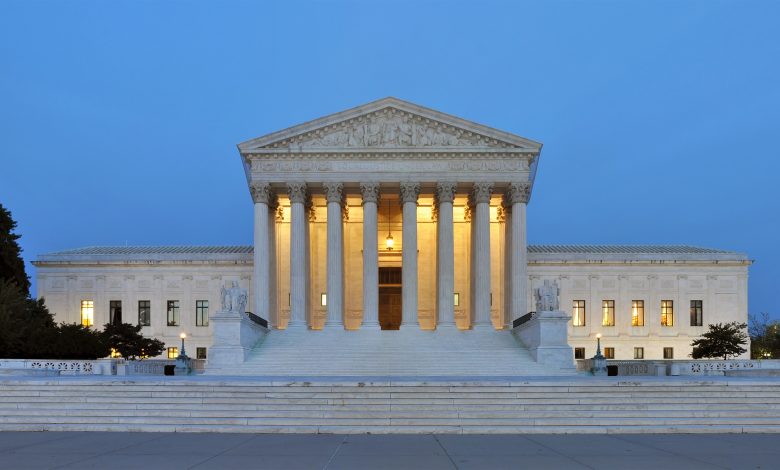Supreme Court Rejects Challenge To Trump-Era Tax

The U.S. Supreme Court on Thursday rejected a challenge to a 2017 tax law signed by former President Donald Trump that sought to rein in a funding mechanism used to pay for his signature cuts.
In a 7-2 decision, justices ruled against Kathleen and Charles Moore, the couple who sued to block a $14,729 tax bill levied against their investment in an overseas company. The Moores argued that they did not realize any profits from their investment and that the collection violates their protections under the 16th Amendment; the court disagreed, ruling that Congress was within its rights to pass a one-time Mandatory Repatriation Tax (MRT) on shareholders with a 10% stake in foreign companies that earned profits, regardless of whether or not those profits were received, according to the Daily Caller.
“The MRT—which attributes the realized and undistributed income of an American-controlled foreign corporation to the entity’s American shareholders, and then taxes the American shareholders on their portions of that income—does not exceed Congress’s constitutional authority,” the majority held.
Justice Brett Kavanaugh, who wrote the majority’s opinion, urged readers to interpret the decision as a narrow one. It applies, he wrote, to “(i) taxation of the shareholders of an entity, (ii) on the undistributed income realized by the entity, (iii) which has been attributed to the shareholders, (iv) when the entity itself has not been taxed on that income.”
“In other words, our holding applies when Congress treats the entity as a pass-through,” he continued.
Liberals like Sen. Elizabeth Warren (D-MA) quickly pounced on the ruling, saying the court she previously called “illegitimate” has now opened a path to her plan to tax all unrealized gains, something Kavanaugh explicitly warned it doesn’t do.
“Right-wing billionaires hoped an obscure legal case would blow up the tax code to avoid paying what they owe, but this effort failed at the Supreme Court. The fight goes on to tax the rich, pass a wealth tax on ultra-millionaires and billionaires, and make the system more fair,” Warren wrote on X.
Right-wing billionaires hoped an obscure legal case would blow up the tax code to avoid paying what they owe, but this effort failed at the Supreme Court.
The fight goes on to tax the rich, pass a wealth tax on ultra-millionaires and billionaires, and make the system more fair. https://t.co/cTaab6eEnz
— Elizabeth Warren (@SenWarren) June 20, 2024
Justice Brett Kavanaugh wrote in his majority opinion that “nothing in this opinion should be read to authorize any hypothetical congressional effort to tax both an entity and its shareholders or partners on the same undistributed income realized by the entity,” according to the AP.
Conservative justices Neil Gorsuch and Clarence Thomas dissented in the case, with Thomas writing the majority upheld the tax “only by ignoring the question presented.” They “should not have hesitated” to state that “Sixteenth Amendment ‘income’ is only realized income.”
“Even as the majority admits to reasoning from fiscal consequences, it apparently believes that a generous application of dicta will guard against unconstitutional taxes in the future,” Thomas wrote. “The majority’s analysis begins with a list of nonexistent taxes that the Court does not today bless, including a wealth tax.”
“But, if the Court is not willing to uphold limitations on the taxing power in expensive cases, cheap dicta will make no difference,” he added.



